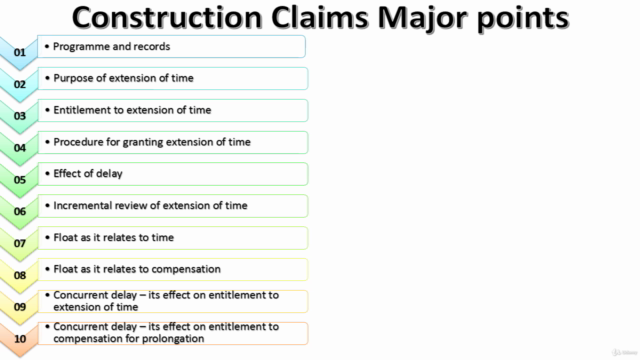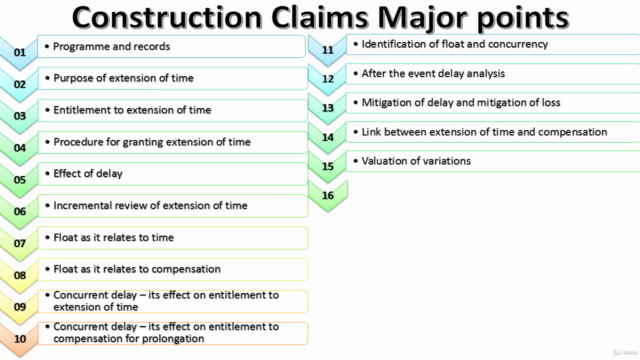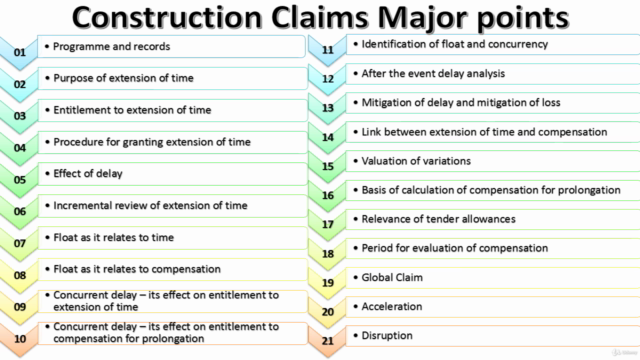Construction Claims E.O.T.المختصر المفيد فى مطالبات التمديد

Why take this course?
-
Inadequate communication: If there is poor communication between the different stakeholders involved in the project (contractors, subcontractors, project management, etc.), it can lead to misalignment of goals, misunderstandings about expectations, and errors that can significantly impact productivity.
-
Change orders and scope changes: Frequent or late change orders can disrupt the workflow, causing delays and requiring additional coordination and negotiation that take time away from actual construction activities.
-
Poorly planned logistics: If materials or equipment are not delivered on time or to the correct location, it can cause delays and inefficiencies in the construction process, leading to a decrease in productivity.
-
Lack of pre-planning: Insufficient planning before the start of field work can result in unanticipated issues that arise once work begins, causing delays and requiring rework, which can all negatively affect productivity.
-
Equipment breakdowns or malfunctions: When machinery fails or operates improperly, it not only causes downtime but also requires additional labor to correct the issue, potentially affecting the overall productivity of the project.
-
Weather conditions: Adverse weather conditions such as rain, snow, high winds, or extreme temperatures can significantly impact construction activities and lead to reduced productivity.
-
Regulatory delays: Compliance with environmental regulations, historical preservation requirements, or other governmental regulations can sometimes lead to significant project delays that affect productivity.
-
Workforce issues: Labor shortages, high turnover rates, or difficulties in recruiting and retaining skilled workers can all impact the efficiency of the construction process and lead to productivity challenges.
-
Subcontractor performance: Reliance on subcontractors who do not perform up to expectations can disrupt the project timeline and require additional supervision or correction, leading to a decrease in overall productivity.
-
Inadequate quality control processes: Lack of effective quality control measures can lead to work having to be redone, which can cause delays and reduce the efficiency of the construction process.
-
Technology integration issues: When new technologies or systems are implemented without proper training or integration into existing processes, it can lead to inefficiencies and a drop in productivity.
-
Cultural misunderstandings: Differences in work culture between the various teams or stakeholders involved can lead to miscommunication, errors, and conflicts that affect productivity.
-
Misallocation of resources: If labor or materials are not allocated effectively to different project areas or tasks, it can lead to bottlenecks and idle time, reducing overall productivity.
-
Underestimation of task durations: In the planning phase, if the time required for certain tasks is underestimated, it can lead to overcommitment of resources at certain times and underutilization at others, affecting overall project efficiency.
-
Lack of contingency planning: Without appropriate plans in place for potential disruptions or unexpected events, the project can suffer significant setbacks that impact productivity.
Each of these factors can have a substantial impact on the productivity of construction projects and should be carefully managed to ensure that the project stays on schedule and within budget.
Course Gallery




Loading charts...